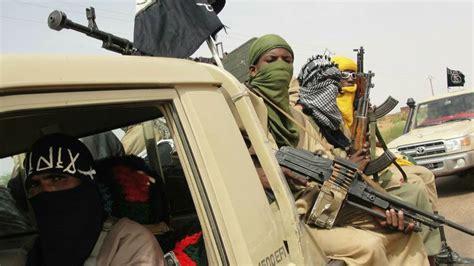
Islamic State and Al Qaeda terrorist groups pose increasing threat in Africa
The United Nations warned on Thursday, July 23, that terrorist groups such as Islamic State (ISIS) and Al Qaeda are posing an increasing threat in much of Africa. According to CNN, a report to the Security Council by the UN monitoring team charged with tracking global Islamist threats revealed that terror groups like ISIS and Al Qaeda are not only resilient but also expanding in many locations.
According to the report, Africa has become the region’s most afflicted by terrorism, with al Qaeda and ISIS-affiliated groups killing more people there than anywhere else. These organisations are gaining popularity, threatening more territory, acquiring better weaponry, and garnering more funds in various regions.
According to the UN report, there appears to be a pattern. Wherever there is no or little pressure on Islamic terror groups, they grow. The UN warns of a potential ‘further deterioration’ in the security situation in Afghanistan, where the US claims it will complete its military withdrawal by August 31.
According to the report, Somali special forces are struggling to hold Al Qaeda affiliate Al-Shabaab as a result of the US military pullout and the partial drawdown of the African Union Mission.
The report claims that Al Qaeda-affiliated terrorists have solidified their dominance in Mali, where France is winding down its counterterrorism role, and are ‘increasingly claiming populated regions.’ ‘The absence of significant counter-terrorism measures’ in Mozambique, according to the report, has turned the ISIS offshoot in central Africa into a ‘major threat’.
Jihadi terror attacks have decreased in Europe and North America, but UN experts believe this is only temporary because terrorist violence was ‘artificially suppressed’ during the COVID-19 pandemic due to limitations in travelling, meeting, financing, and selecting viable targets. At the same time, they believe that during the lockdowns, the risk of online radicalization increased.
Edmund Fitton-Brown, coordinator of the UN monitoring team, said, “One of the things that we highlight in the report that’s just come out is the possibility that the relaxation of lockdowns might mean that some pre-planned attacks can then take place.”
The report is disturbing reading at a time when the US and its allies have all but declared the 20-year ‘war on terror’ over, tired by the pandemic and eager to focus on economic recovery and standing up to China and Russia. “We may be done with jihadis, but they are not done with us,” one prominent observer recently stated. Furthermore, the threat posed by ISIS in Iraq and Syria is far from gone with the group’s estimated reserves ranging from USD 25 million to USD 50 million, reported CNN.
In the face of “constant counter-terrorism pressure,” ISIS has “reasserted itself somewhat in Iraq” this year, according to the report. ISIS claimed responsibility for a blast in Baghdad that killed at least 30 people earlier this week. According to UN monitors, ISIS still has the “intent and capability to sustain a long-term insurgency in the Syrian desert” that borders Iraq, according to member states.
In other parts of Syria, the study claims that groups associated with Al Qaeda continue to dominate the Idlib area, which is home to more than 10,000 terrorist militants. It claims that member states are afraid that Islamic fighters could transfer from that region to Afghanistan if the climate there improves.
With the Taliban making rapid inroads across Afghanistan, there is widespread anxiety that the group will grab power and turn the country into a safe place for international terrorism once more. Al Qaeda is present in at least 15 Afghan provinces, according to the UN report, and operates under Taliban protection from Kandahar, Helmand, and Nimruz Provinces.
Suhail Shaheen, a Taliban spokesperson, said in a CNN interview this week that the group has pledged not to allow any individual, group, or entity to use Afghanistan against the United States, its allies, or other countries, and that terrorists will have no place in an Afghanistan ruled by the Taliban.
Fitton-Brown, on the other hand, believes the Taliban have not severed their ties with Al Qaeda. They haven’t taken any actions against al Qaeda that they can’t easily and quickly reverse. “The international world does not have much faith that the Taliban is moving towards a serious commitment to a stable, negotiated, and eventually peaceful settlement in Afghanistan,” he argued. There’s also concern that ISIS has established a stronghold in Afghanistan, with one member-state estimating between 500 and 1,500 fighters.
Despite being weakened in eastern Afghanistan, UN experts warn that ISIS’s regional offshoot has ‘moved into other provinces’ and ‘strengthened its locations in and around Kabul, where it conducts the majority of its attacks’. Two decades after 9/11, Al Qaeda and ISIS’s ability to attack the West is now at an all-time low.
However, the UN report shows that the threat posed by transnational terrorist groups has spread and that they are established in under-governed areas at a time when Western powers are concerned with other matters, reported CNN. Fitton-Brown said, “It’s important not to take our eye off counterterrorism and particularly important not to stop improving international counterterrorism cooperation.”
Source: Republic World





